Contact Group experts to meet in Vienna
A team of Balkans experts from the Contact Group will meet in Vienna on August 29.
Tuesday, 28.08.2007.
09:50

A team of Balkans experts from the Contact Group will meet in Vienna on August 29. According to Beta news agency, the experts will hold talks in light of the continuation of the negotiation process for the future status of Kosovo, which is scheduled to begin a day later, on August 30. Contact Group experts to meet in Vienna The Western Balkans directors of the foreign ministries of the Contact Group member states will discuss all options that could potentially, with the guidance of the mediating Troika, open up direct talks between Belgrade and Pristina, in the hope of finding a solution to the status issue, anonymous diplomatic sources told Beta. The negotiations are expected to start with meetings between the Troika made up of U.S. representative Frank Wiesner, Russian Alexander Botsan-Kharchenko and the EU's Wolfgang Ischinger, together with Pristina delegation on August 30. Belgrade's status negotiating team will meet with the Troika afterwards. Diplomatic sources from within the European Union have most recently stated that besides the status solution proposed by Martti Ahtisaari, there are no other drafted plans for resolving the status crisis, though the international community is expecting quick and palpable progress in the process through dialogue with the Serbian and Kosovo Albanian sides. It looks as if “additions” to the Ahtisaari plan are now being discussed, as a basis for the discussions, or even an entirely new proposal for Kosovo's status aimed at ensuring stability in the region and the uninterrupted integration of Serbia into Euro-Atlantic structures, reports have suggested. Diplomats in Brussels say that there are no real proposals at this moment in time and that it is better to wait for the first meetings between the Troika and the Serbian and Albanian negotiators to take place, as well as the informal meeting of EU foreign ministers in Portugal on September 7-8, at which Kosovo will be one of the key topics of discussion. European diplomats stated that if no progress was made after 120 days of negotiations, then the potential implementation of the Ahtisaari plan would be discussed more seriously. New talks – same positions As the new Kosovo status negotiations approach, Belgrade and Pristina remain firm in their already familiar positions. If Kosovo independence is not achieved after this round of negotiations in Vienna, Albanian leaders in Kosovo claim that they will proclaim independence unilaterally. Belgrade states that such threats need to be taken very seriously, and is calling on the U.S to stop encouraging such separatist sentiments. Even though Belgrade insists that the basis of talks on Kosovo's future status must be based on stable boundaries and Serbia's territorial integrity, Kosovo Serb leader Rada Trajkovic is one Serb politician that sees the situation differently. “To be honest, I do not expect these talks to bring about any solutions or compromise between the Serbian and Albanian sides,” Trajkovic said. “We know that Belgrade is currently unable to support Kosovo economically, politically, or guarantee the safety of Kosovo Serbs, or for that matter to integrate us." "Furthermore, the Kosovo leaders and institutions of the provisional government do not have the capacity to secure any kind of independence,” she said. Kosovo Albanians are convinced that this new round of Vienna talks will be the last regarding the province's status. They have no doubt that the Ahtisaari plan, which calls for internationally-supervised independence, will become a reality, while Serbia does not even recognize the plan as a legitimate proposal worthy of discussion. If independence is not granted, Kosovo leaders are prepared to unilaterally proclaim independence, despite warnings that the solution needs to be confirmed by the United Nations Security Council. “These 120 days of talks will be a good opportunity for trans-Atlantic organization, for Washington and the EU to agree to accept Kosovo's independence, even if it is not confirmed in New York, if all other options are used up,” said Kosovo negotiation delegation member Ylber Hysa. Belgrade is warning the international community that these threats of a unilateral proclamation of independence need to be taken seriously. Democratic Party of Serbia (DSS) spokesperson Branislav Ristivojevic said that the EU must tell Kosovo Albanians that such claims are unacceptable, adding that the U.S. must stop encouraging independence. “I think that it is of key importance for the U.S. to clearly distance itself from the Ahtisaari plan and all elements that suggest that Kosovo, our southern province, could become independent or have a NATO state formed on our territory,” Ristivojevic said.
Contact Group experts to meet in Vienna
The Western Balkans directors of the foreign ministries of the Contact Group member states will discuss all options that could potentially, with the guidance of the mediating Troika, open up direct talks between Belgrade and Priština, in the hope of finding a solution to the status issue, anonymous diplomatic sources told Beta.The negotiations are expected to start with meetings between the Troika made up of U.S. representative Frank Wiesner, Russian Alexander Botsan-Kharchenko and the EU's Wolfgang Ischinger, together with Priština delegation on August 30.
Belgrade's status negotiating team will meet with the Troika afterwards.
Diplomatic sources from within the European Union have most recently stated that besides the status solution proposed by Martti Ahtisaari, there are no other drafted plans for resolving the status crisis, though the international community is expecting quick and palpable progress in the process through dialogue with the Serbian and Kosovo Albanian sides.
It looks as if “additions” to the Ahtisaari plan are now being discussed, as a basis for the discussions, or even an entirely new proposal for Kosovo's status aimed at ensuring stability in the region and the uninterrupted integration of Serbia into Euro-Atlantic structures, reports have suggested.
Diplomats in Brussels say that there are no real proposals at this moment in time and that it is better to wait for the first meetings between the Troika and the Serbian and Albanian negotiators to take place, as well as the informal meeting of EU foreign ministers in Portugal on September 7-8, at which Kosovo will be one of the key topics of discussion.
European diplomats stated that if no progress was made after 120 days of negotiations, then the potential implementation of the Ahtisaari plan would be discussed more seriously.
New talks – same positions
As the new Kosovo status negotiations approach, Belgrade and Priština remain firm in their already familiar positions.If Kosovo independence is not achieved after this round of negotiations in Vienna, Albanian leaders in Kosovo claim that they will proclaim independence unilaterally.
Belgrade states that such threats need to be taken very seriously, and is calling on the U.S to stop encouraging such separatist sentiments.
Even though Belgrade insists that the basis of talks on Kosovo's future status must be based on stable boundaries and Serbia's territorial integrity, Kosovo Serb leader Rada Trajković is one Serb politician that sees the situation differently.
“To be honest, I do not expect these talks to bring about any solutions or compromise between the Serbian and Albanian sides,” Trajković said.
“We know that Belgrade is currently unable to support Kosovo economically, politically, or guarantee the safety of Kosovo Serbs, or for that matter to integrate us."
"Furthermore, the Kosovo leaders and institutions of the provisional government do not have the capacity to secure any kind of independence,” she said.
Kosovo Albanians are convinced that this new round of Vienna talks will be the last regarding the province's status.
They have no doubt that the Ahtisaari plan, which calls for internationally-supervised independence, will become a reality, while Serbia does not even recognize the plan as a legitimate proposal worthy of discussion.
If independence is not granted, Kosovo leaders are prepared to unilaterally proclaim independence, despite warnings that the solution needs to be confirmed by the United Nations Security Council.
“These 120 days of talks will be a good opportunity for trans-Atlantic organization, for Washington and the EU to agree to accept Kosovo's independence, even if it is not confirmed in New York, if all other options are used up,” said Kosovo negotiation delegation member Ylber Hysa.
Belgrade is warning the international community that these threats of a unilateral proclamation of independence need to be taken seriously.
Democratic Party of Serbia (DSS) spokesperson Branislav Ristivojević said that the EU must tell Kosovo Albanians that such claims are unacceptable, adding that the U.S. must stop encouraging independence.
“I think that it is of key importance for the U.S. to clearly distance itself from the Ahtisaari plan and all elements that suggest that Kosovo, our southern province, could become independent or have a NATO state formed on our territory,” Ristivojević said.











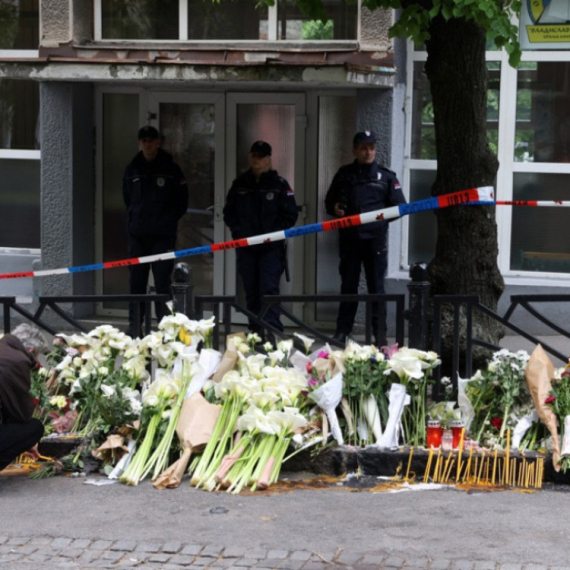
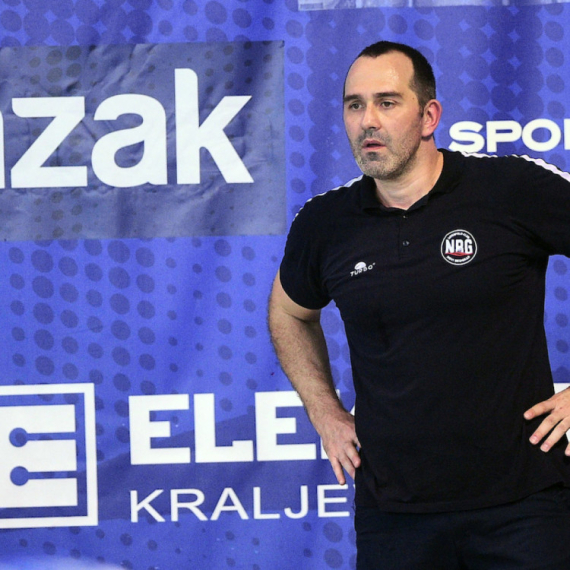


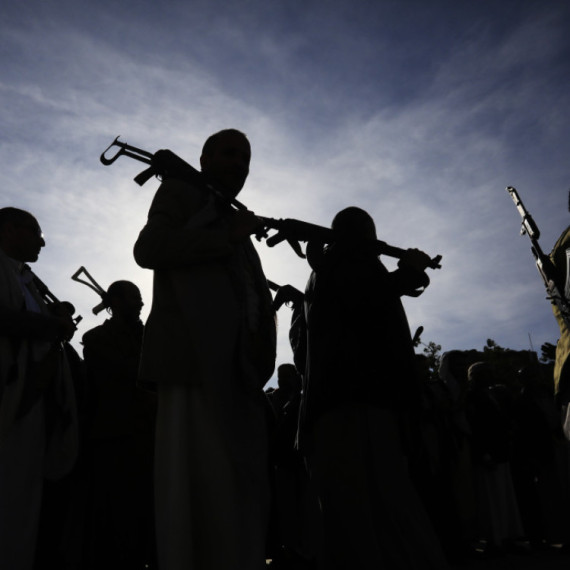

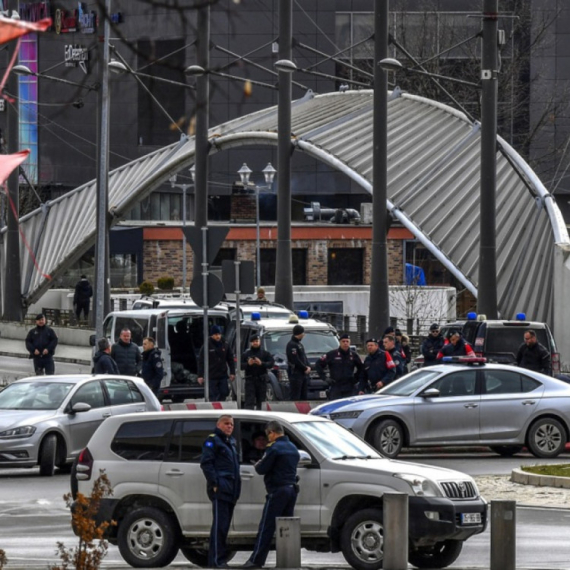

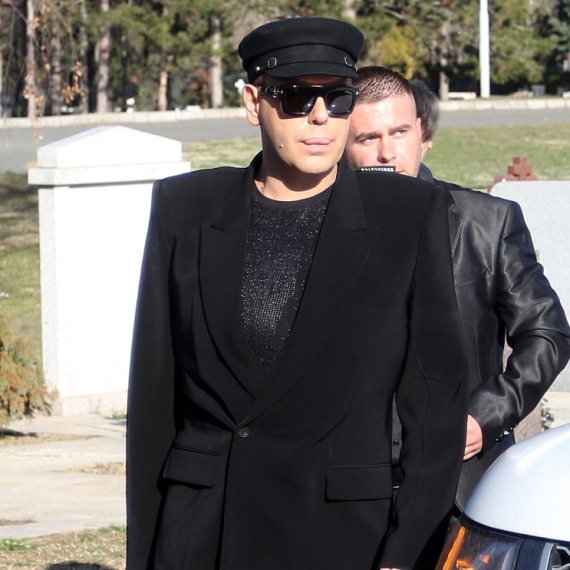





















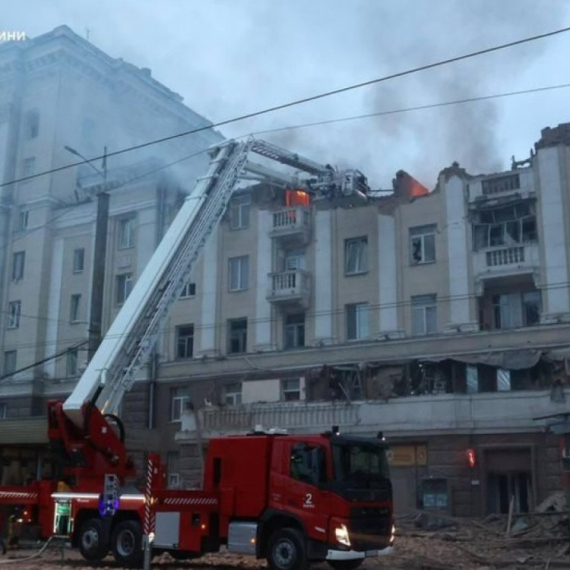
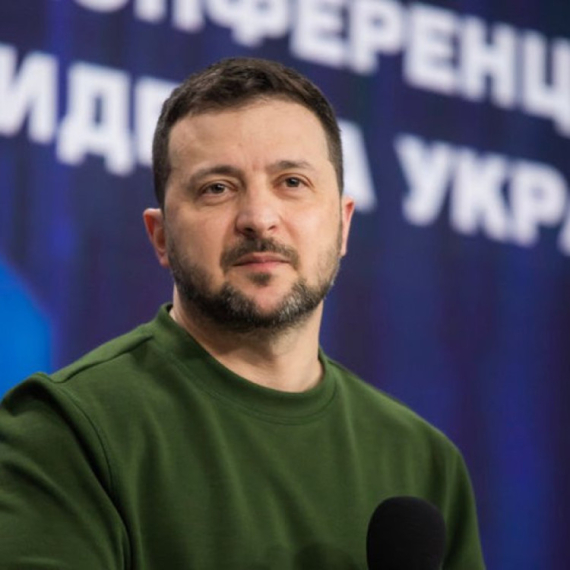


Komentari 6
Pogledaj komentare